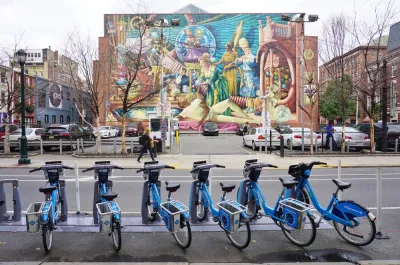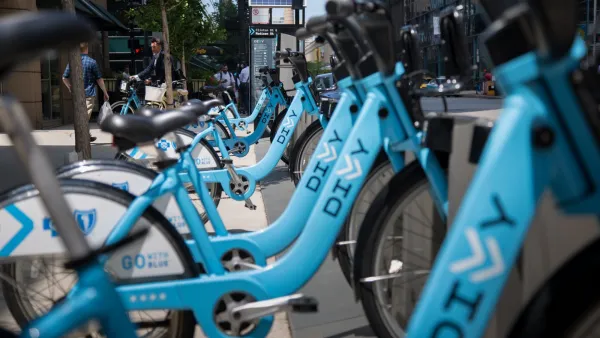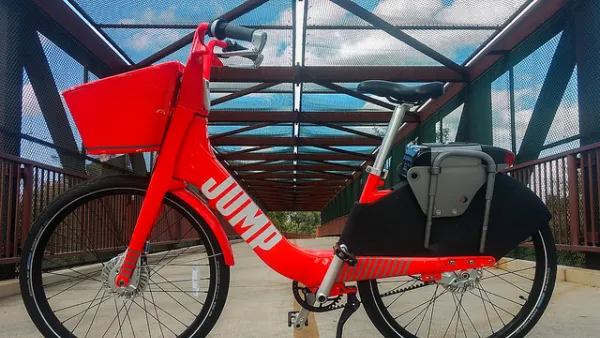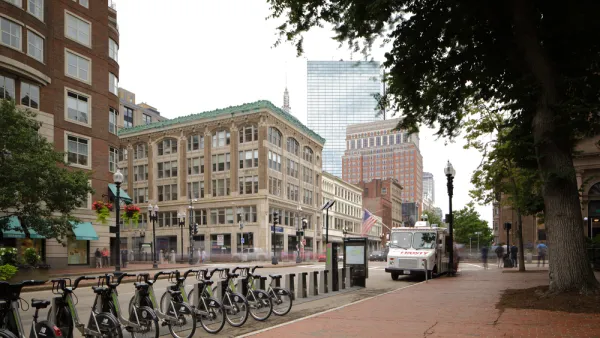As bikeshare operations have evolved and spread they've begun to differentiate, not just between docked and dockless, but also in terms of public or private ownership and electric and non-electric offerings.

Bikeshare operations have always varied from city to city, but as this mode of transit has become more popular, it's also become more diverse. "It’s easy to forget how young and unformed this transportation mode is: The first modern municipal bikeshare, Paris’s Velib, launched in 2007, and the first programs in the U.S. appeared in 2010," Alex Baca reports for CityLab.
Today there are a number of different types of bike share. One thing driving this differentiation is the variety of owners and funders of the services. "For example, D.C.’s Capital Bikeshare is publicly funded and publicly owned, but privately operated by Motivate, a firm that also operates Divvy in Chicago and Citibike in New York City. Divvy, like CaBi, is publicly funded, whereas Citibike is publicly owned but funded through sponsorships from Citibank and Mastercard," Baca writes.
The advent of dockless bikeshare changed the types of ownership again, in part because of the difference in equipment costs. "What users might not realize that the bikes themselves are also vastly cheaper, compared to traditional equipment. Each dockless bike costs its company about $200; traditional bikeshare bikes—the PBSC tanks, SoBi’s pre-Jump “smart bikes,” B-Cycle’s cruisers—are all north of $2,000," Baca writes.
If cities want to get the most out of this changing mobility service, they need to be careful how they craft their regulations, Baca argues. "Cities should fastidiously demand companies share their ridership data, and should hold operators to key performance indicators to keep bikes balanced and accessible." This would apply to e-bike, scooter and e-scooters as well.
FULL STORY: What Cities Need to Understand About Bikeshare Now

Analysis: Cybertruck Fatality Rate Far Exceeds That of Ford Pinto
The Tesla Cybertruck was recalled seven times last year.

National Parks Layoffs Will Cause Communities to Lose Billions
Thousands of essential park workers were laid off this week, just before the busy spring break season.

Retro-silient?: America’s First “Eco-burb,” The Woodlands Turns 50
A master-planned community north of Houston offers lessons on green infrastructure and resilient design, but falls short of its founder’s lofty affordability and walkability goals.

Test News Post 1
This is a summary

Analysis: Cybertruck Fatality Rate Far Exceeds That of Ford Pinto
The Tesla Cybertruck was recalled seven times last year.

Test News Headline 46
Test for the image on the front page.
Urban Design for Planners 1: Software Tools
This six-course series explores essential urban design concepts using open source software and equips planners with the tools they need to participate fully in the urban design process.
Planning for Universal Design
Learn the tools for implementing Universal Design in planning regulations.
EMC Planning Group, Inc.
Planetizen
Planetizen
Mpact (formerly Rail~Volution)
Great Falls Development Authority, Inc.
HUDs Office of Policy Development and Research
NYU Wagner Graduate School of Public Service




























